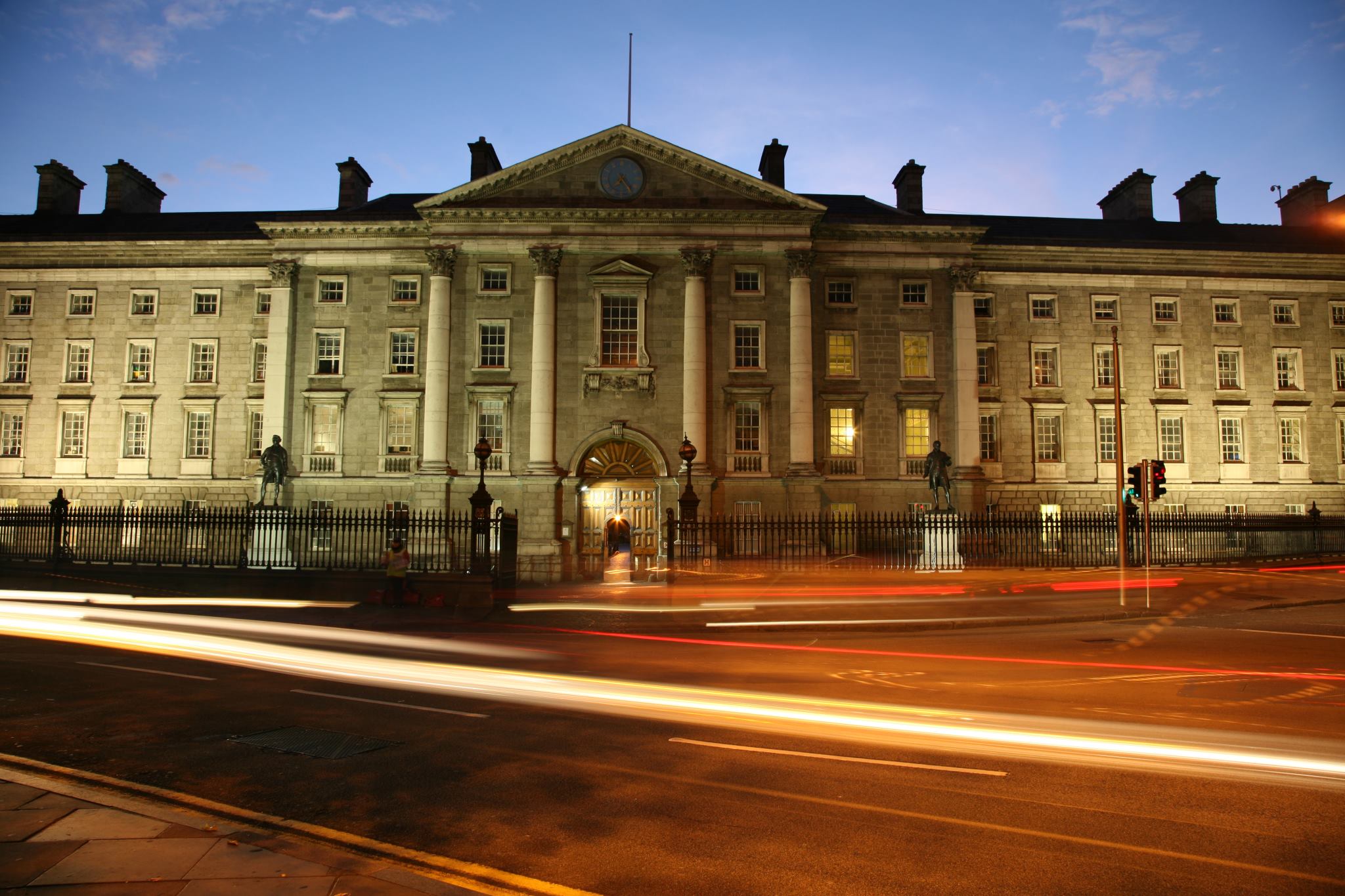Jack Leahy | Contributing Editor
Twenty-five places in Trinity have been offered this morning to CAO applicants who took part in the college’s pioneering feasibility study in alternative admissions.
The study, which considers an applicant’s performance relative to their classmates and a personal statement in addition to prior academic attainment, is being piloted by Trinity on behalf of the Irish Universities Association (IUA) and offers 25 undergraduate places in Law (10), History (10), and Ancient & Medieval History and Culture (5).
The objective of the feasibility study is to ascertain whether it might be possible to develop a new admissions system for third level. Organisers hope that the new applicant system can provide a better mechanism to identify and admit applicants whose potential for academic performance is not captured by the Leaving Certificate examinations alone.
A total of 270 prospective students took part in the study, which exceeded the expectations of the organisers and project sponsor. All those who partook in the study are also eligible for places allocated through the traditional mechanism.
An interim report will be shared with the sector before the end of the calendar year as part of Trinity’s ongoing contribution to the admissions discourse.
The ten students offered places in Law received points scores within 70 points of the required CAO total and are receiving their offers having demonstrated academic ability, potential, and suitability for the course through the three modalities.
The ten students to be offered places in history received points scores within 150 points of the required CAO total.
The study, run in conjunction with the CAO, allowed applicants the option to participate in the study upon application for the courses. Candidates who indicated a wish to opt in were required to submit a 1,000-word personal statement essay and had a relative performance rank (RPR) assigned to them by the CAO once their results and those of their classmates were available.
The University Times understands that the three modalities for evaluation were equally weighted. Two readers – experts in the subject – read and scored each of the essays independently, using a scale of 1-6.
In 101 cases, the two readers arrived at the exact same score. In 29 cases there was a difference of more than two points.
Personal statements were sent to the readers once any identifying information had been redacted. Information relating to the applicant’s school was not sought and no endorsements or interviews were part of the process.
The use of RPR is in accordance with practice in leading international universities with holistic admissions programmes. Elite institutions – most famously Harvard – are known to use a broader set of indicators to identify exceptional academic potential.
Scores provided by external experts and the CAO were collated internally on August 13th under the guidance of an external chair, Judge Yvonne Murphy, who has presided over major state enquiries into child abuse and mother and baby homes. Representatives of TCD Students’ Union, The Union of Students’ in Ireland, and teaching unions were among the numerous stakeholders invited.
Dr. Patrick Geoghegan, project sponsor, stated that ‘the feasibility study shows that it is possible to use additional factors when assessing applicants, and still maintain anonymity and transparency.”
“The best students are not necessarily the ones with the highest points – they are the ones with the academic ability and potential needed to thrive at third-level, self-reflective and independent thinkers, who are the right fit for the right course”, he said. “Instead of just looking at the performance of a student in a single set of examinations, we have used a wider range of indicators, in the attempt to ensure that talented students who don’t necessarily achieve the required points total are still able to achieve their dreams.”
Geoghegan concluded: “These are the kinds of students we want in our classrooms – students who are passionate about learning, independent and critical thinkers, and with the ability and potential to succeed academically.”
Dean of Undergraduate Studies, Dr. Gillian Martin, said: ‘The feasibility study will run for two years, and that the data collected will be invaluable as we work with the entire third-level sector to help the transition from second to third-level.”
“Much good work is being done in this area, and the role of the Department of Education and Skills and successive Ministers for Education has been vital. This feasibility study is part of Trinity’s contribution to that important ongoing work”.
Correction: 00:13, August 18, 2014
An earlier version of this article originally stated that Trinity have allocated five places in the Ancient History & Archaeology course to students as part of the feasibility study. In fact, five places have been offered to students in Ancient & Medieval History and Culture, not Ancient History & Archaeology.







